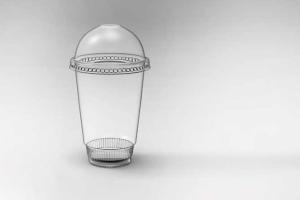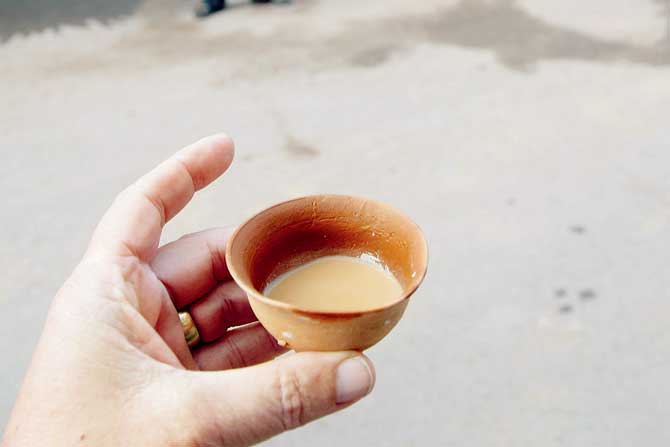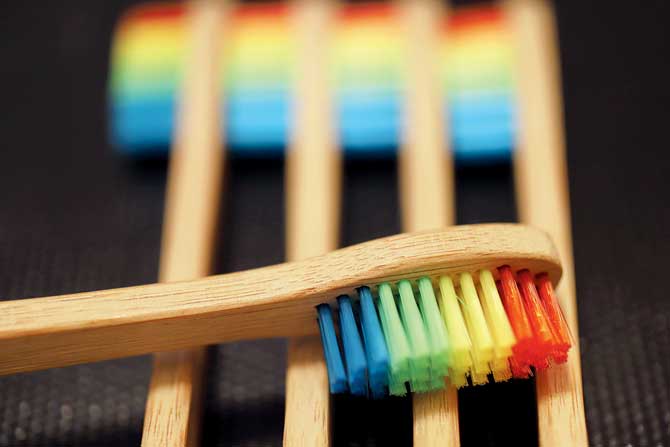While the government wants you to stop using plastic for its detrimental impact on the environment, here's why ditching it could do a lot of good to your health, too

Plastic glass
For Mumbai-based entrepreneur Shaan Lalwani, the Maharashtra government's decidedly tough stance on plastic is perfectly attuned to her own plastic-free lifestyle. Lalwani, 33, made the decision to banish plastic from her daily routine a year ago, and hasn't looked back since.
"Roughly five years ago, I was saddened to see one of my favourite beaches covered in trash. I started to pick up the trash as much as I could, until it occurred to me that putting plastic litter into a bin would not make it go away. This inspired me to eliminate plastic items from my life," she shares, noting that her decision was also partially inspired by her growing awareness of the long-term effects of plastic on human health. These effects, say experts, can be grave and should be considered when you analyse the role of plastic in everyday life.
ADVERTISEMENT

Consuming food in Styrofoam containers can lead to chemicals leaching into it
Plastic belly
The ubiquitous presence of plastic in household items means that most people are still largely ignorant about the extent to which it has invaded their life, says Luke Coutinho, a holistic nutrition practitioner at Integrative and Lifestyle Medicine. Regular use of plastic items exposes your body to xenoestrogens, or oestrogen-mimicking molecules that compete with normal oestrogen molecules as receptors.
This, in turn, leads your body to produce too much of the hormone, bringing about a condition known as oestrogen dominance. The condition has been linked to certain cancers including breast, colon and prostrate cancers, hormonal imbalances leading to PCOD, ovarian problems and fat gain, says Coutinho.

Shaan Lalwani
In men, xenoestrogens can lower libido and count and/or quality of sperm. Women may have trouble conceiving due to the higher levels of prolactin in the body. This, in turn, can lead to infertility in young couples. Your body is most likely to be exposed to xenoestrogens when you eat from takeaway containers or consume piping-hot items from plastic plates and containers.
The home front
BPA, PVC (polyvinylchloride) and phthalates are commonly found in several other household objects, says Dr Tarun Sahni, senior consultant, internal medicine at Indraprastha Apollo Hospital. "BPA and phthalates disrupt the body's endocrine function, interfering with the production and action of hormones.

PVC, a carcinogen, is used in toys
While high BPA levels affect male and female fertility, PVC has been listed as a carcinogen by the National Toxicology Program [run by the United States Department of Health and Human Services] and can cause a number of issues such as skin disorders, indigestion and liver failure," he explains.

Luke Coutinho
PVC is commonly used in toys and cosmetics, which come into direct contact with skin on a regular basis. Children often put toys in their mouth, which could lead to chemicals from these toys reacting with the body, he adds. Repeated exposure to these chemicals can lead to toxins building up in your body, and studies have found that this can potentially affect your DNA, he adds. Coutinho and Lalwani have some tried-and-tested hacks for you for healthy, plastic-free urban living. Read on.
Change your food habits

* Opt for traditional materials such as stainless steel, copper, banana leaf, clay and wood for cutlery
* Switch from plastic tiffin containers to glass boxes or stainless steel
* Limit your food takeaways and home delivery orders as you cannot control the type of plastic used in the containers, and also because restaurants and cafés often transfer food straight from hot pans into plastic containers
* If you must order in, make sure to ask the restaurant about the grade of plastic used — grades one, four and five are safer than grades three and seven (these are the cheapest and often used by restaurants)
* At home, avoid transferring hot food immediately into plastic containers. Use stainless steel or glass where possible. If you must use plastic, cool the food completely before placing in the plastic container
* Avoid Teflon-coated non-stick cookware. After a certain point, these coatings begin to break down, releasing toxic chemicals into your food.
Change your lifestyle

- Use cloth or wooden toys for your children and pets.
- Lalwani prefers to visit organic and farmers markets that offer loose rations, which you can carry home in your own cloth bags or metal containers. When consuming fizzy drinks, she opts for recyclable glass bottles, and carries her own spoon and cup for ice cream.
- When buying groceries from local shops, immediately transfer all the items packaged in plastic packets and bottles (such as cooking oils, dals, spices, rice and flours) to glass or clay jars. If you buy any items bottled in glass, make sure to clean and reuse the container.
- Avoid drinking hot liquids in Styrofoam or thin plastic cups, as this can lead to chemicals leaching into your drink. Opt instead for bone china or glass cups, mason jars, or bring your own cup.
- Always carry your own cloth or jute shopping bags. Many local vendors sell fruits and vegetables in low-grade plastic bags that can be very toxic.
- Avoid wrinkle-free fabrics, which contain Teflon, a type of plastic. Choose organic and natural fabrics such as cotton, wool and linen.
- While several eco-friendly options such as metal and banana leaf straws are sold as an alternative to plastic, avoid single-use items as far as possible. This has helped Lalwani to reduce the amount of dry waste produced in her household to only one container a month.
- Lalwani has also replaced her regular toothbrushes with bamboo, to limit the extent to which her body is exposed to plastic.
Catch up on all the latest Crime, National, International and Hatke news here. Also download the new mid-day Android and iOS apps to get latest updates
 Subscribe today by clicking the link and stay updated with the latest news!" Click here!
Subscribe today by clicking the link and stay updated with the latest news!" Click here!







